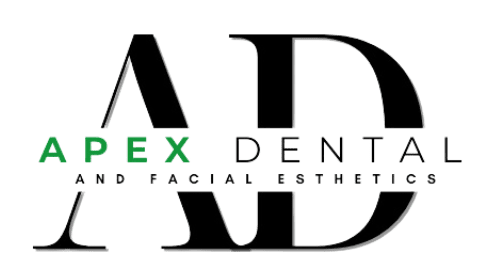Millions of Americans miss work, make countless visits to the doctor, and overspend on pain relievers each year due to headaches and migraines. Some headaches, especially those that occur upon waking, may be caused by TMJ dysfunction.
These types of headaches can be successfully treated and often cured by a qualified dentist through simple dental procedures and TMJ therapy.
Dr. Robert Gauthier is a family and general dentist with advanced training and experience in the treatment of TMJ disorders (TMD). Few clinicians are trained to properly identify, diagnose, and treat TMD.
Dr. Gauthier has undergone post-graduate training at the Dawson Academy, learning the latest in dental care and procedures in order to restore health, function, and beauty to the mouth with treatments that are pain-free, affordable, and long-lasting.
Stress is a common cause of headaches. Other conditions, such as malocclusion (unbalanced bite) and TMJ dysfunction, can contribute to headaches or migraines.
When the teeth do not make proper contact, and the jaws are not in proper alignment, it creates stress and tension in the muscles and face, causing headaches to occur. The tension in the jaw and mouth throughout the day also contributes to chronic headaches, migraines, and dental concerns.

Are Your Headaches Caused By TMJ Dysfunction?
Headaches are the most common sign of TMJ dysfunction. TMJ headaches tend to occur in the morning because of teeth clenching and teeth grinding that occurs while you sleep.
TMJ headache symptoms:
- Pain in the temples or back of the head
- Morning headaches
- Pain in the shoulders, neck, and upper back
- Migraine headaches
- Teeth grinding, teeth clenching
TMJ Headache Therapy
Dr. Gauthier will perform a bite analysis to evaluate your jaw joints and determine if your headaches are caused by TMJ dysfunction.
Treatment for TMJ headaches can range from simple oral appliance therapy, using a nightguard or splint, to advanced bite correction therapy which involves reshaping the teeth so that they make proper contact.
TMJ Mouthguard: Teeth grinding is closely linked with TMJ dysfunction. A TMJ mouthguard keeps your teeth aligned and prevents the top and bottom teeth from coming into contact with each other while you sleep, preventing teeth from grinding. Dr. Gauthier is able to custom make a mouth guard that fits comfortably in your mouth.
Bite Correction: If a mouthguard is unsuccessful in correcting teeth grinding, some patients benefit from bite correction, also known as occlusal equilibration. Dr. Gauthier will realign the teeth so that the upper and lower teeth come into contact with each other correctly.
This will eliminate the stress on the jaw joints (TMJ). Bite correction can include a number of procedures including tooth bonding, dental crowns, porcelain veneers, or dental implants.
Frequent Headaches FAQs
It surprises some patients, but your frequent headaches may be a dental problem. Learn more by reading the answers to these frequently asked questions.
Can tooth pain lead to headaches?
Yes. A specific nerve is responsible for most of the feelings and sensations in your face. When you have a toothache, it can trigger this nerve and lead to a migraine. If you have a toothache that turns out to be from an infection, that can also trigger pain from this nerve.
What does a bruxism or TMJ headache feel like?
Typically, these conditions give you a tension headache. You feel a steady, dull, or aching pressure. If you only grind on one side, you may only feel the pain on one side, but it can occur on both. These headaches can last for days at their worst and are exacerbated if you don’t get treatment for your condition.
Can sleep apnea cause frequent headaches?
Yes, sleep apnea has many consequences. When you have sleep apnea, you have trouble breathing throughout the night. Your blood and brain don’t get the amount of oxygen you need, which can lead to a headache. Typically, you’ll experience these right when you wake up. You feel pressure in the head, but the symptoms typically don’t last too long.
When should I be worried about my headache frequency?
Everyone gets a headache occasionally, but when does it turn into a problem? If you’re noticing that you’re waking up with a heaache more often than not, it’s something that needs to be looked into. Start a tally count on a piece of paper and see how often you’re actually waking up with a headache.
How can I tell what’s causing my headaches?
When you have headaches, take note of when you have them, the frequency, and what the pain feels like. All of this allows us to determine what’s causing them. We’ll go over your medications, medical history, dental history, and anything else we may feel is pertinent. This helps us determine if it’s something we can treat or if you’ll have to go to your medical doctor.
What can a dentist do to help frequent headaches?
Our office provides both sleep apnea and TMJ treatment. We perform an evaluation to determine the root cause of your frequent headaches. For TMJ, we usually use oral appliance therapy and/or other techniques to balance the bite and prevent your teeth from grinding together. Sleep apnea also utilizes an oral appliance, shifting the jaw to prevent the soft tissues in the back of your throat from collapsing while you sleep.
Get Relief From Frequent Headaches
A simple bite analysis and consultation can reveal whether or not your headaches are caused by TMJ dysfunction. With comprehensive diagnosis and personalized care, you can experience permanent relief from painful symptoms and enjoy an improved quality of life.
Request a dental consultation with Dr. Gauthier to discuss your concerns and learn more about our treatment options.
